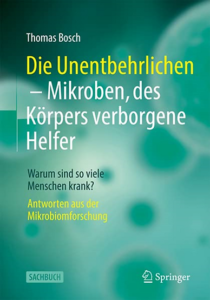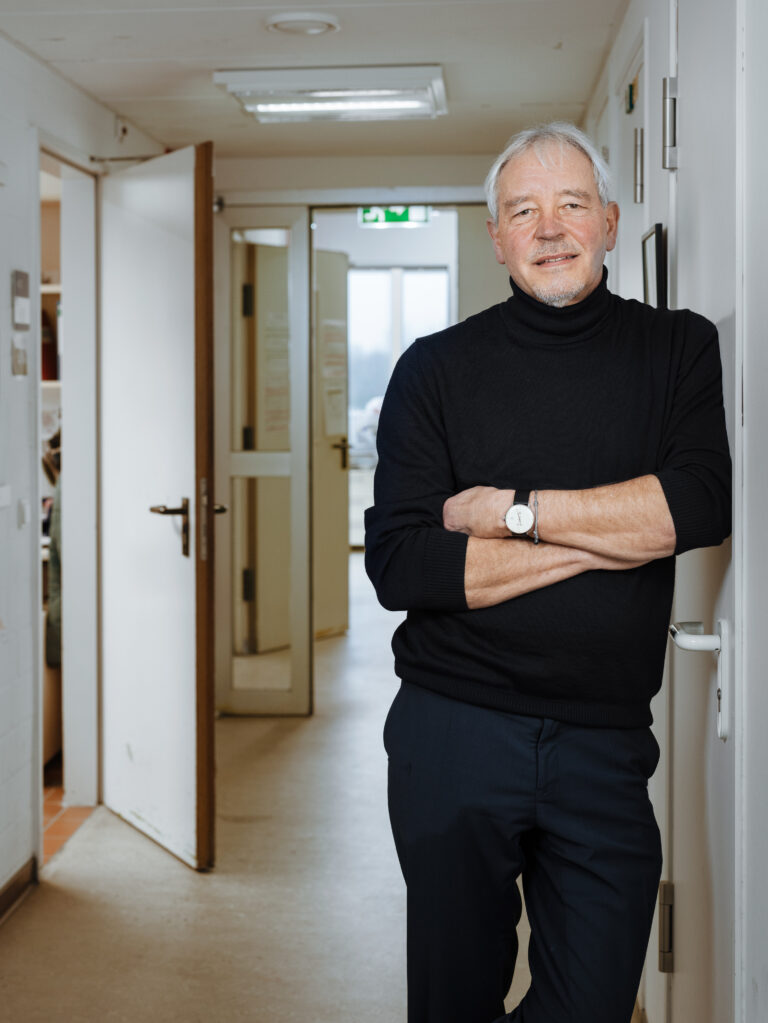CURRICULUM VITAE Prof. Dr. Thomas C.G. Bosch
Main research interests
Molecular and cell biology, evolution and mechanisms of animal development, host-microbe interactions in simple multicellular organisms
Thomas Bosch is a zoologist and comparative developmental biologist. He has made important contributions to the comparative biology of stem cells and has intensively researched the molecular basis of tissue homeostasis, stem cell ageing and immune ageing. His current research focuses on the evolution and functioning of metaorganisms. The key question is what interactions exist between animals and their co-evolved microorganisms, how they have evolved and by what mechanisms they are controlled.
Academic and professional career
Since 2024
Senior Professor, Institute of Zoology, Kiel University
2000 – 2024
Professor (C4) of General Zoology at Kiel University and Director at the Zoological Institute of Kiel University
1997 – 1999
Professor (C3) of Special Zoology, Friedrich Schiller University Jena
1993 -1997
Research associate (Privatdozent C2), Zoological Institute, Ludwig-Maximilians-University Munich
1993
Habilitation in Zoology, Ludwig-Maximilians-University Munich
1988 – 1993
Research assistant, Zoological Institute, Ludwig-Maximilians-University Munich
1986 – 1988
Post-doc, Feodor Lynen Fellowship of the Alexander-von-Humboldt Foundation at the Developmental Biology Center, University of California, Irvine, USA
1983 – 1986
Doctorate, Institute of Zoology, Ludwig-Maximilians-University Munich
1976 – 1983
Studied biology at the Ludwig-Maximilians-University Munich, Germany, and the University College Swansea, UK
Awards and memberships granted
Since 2025
Member, German National Academy of Sciences Leopoldina
2022
Karl-Ritter-von-Frisch-Medal; Highest Science Award of the German Zoological Society (DZG)
2018/2019
Fellow, Wissenschaftskolleg zu Berlin
Since 2016
Fellow, Canadian Institute for Advanced Research (CIFAR)
2004
Doctor “honoris causa”, St. Petersburg State University, Russia
1986
Feodor Lynen Scholarship of the Alexander von Humboldt Foundation
Functions in scientific institutions and committees (selection)
Since 2024
Member, International Advisory Board Inter-Micro project, Institute of Microbiology of the Czech Academy of Sciences
Since 2022
Member, Board of Directors of The Microbiota Vault, Inc
Since 2021
Member, Scientific Advisory Board, Asian Microbiome and Nutrition Centre in Singapore, Sunway University, National Neuroscience Institute
Since 2020
Member of the Scientific Advisory Board, Japanese Science and Technology Agency (JST) – Exploratory Research for Advanced Technology (ERATO)
Since 2020
Member of the Scientific Advisory Board, University of Copenhagen, H2020 project 3D’omics
Since 2013
Spokesperson of the university focus “Kiel Life Science” (KLS), Kiel University
2010 – 2013
Vice President of Kiel University for Research and International Relations
2016 -2023
Spokesperson of the Collaborative Research Center “Origin and Function of Metaorganisms” (DFG SFB 1182)
2016 -2018
President of the Society for Developmental Biology
2015-2016
Vice President of the German Zoological Society
2015 – 2023
Member and speaker, Scientific Advisory Board of the Faculty of Biosciences, Friedrich Schiller University Jena
2012 – 2020
Member and speaker (2016-2020) of the DFG Review Board 203 Zoology
2008 -2021
Founding member and Editor-in-Chief, Zoology (Elsevier)
Main areas of research
Thomas Bosch is a comparative developmental biologist. He investigates how differentiation and development processes in simple multicellular organisms such as the freshwater polyp Hydra have evolved, how they function, and what influence the environment and in particular the microbiome have. His previous work on stem cell biology has revealed FoxO as one of the evolutionarily conserved transcription factors that controls stem cell biology, stem cell aging and also immune aging.
The focus of Thomas Bosch’s current research is on the relationships between animals and microbes, including the establishment and maintenance of symbioses and their effects on animal health. Bosch discovered that there is a species-specific microbiota in Hydra that is an essential component of the innate immune system. Similar patterns have been observed in taxonomically diverse groups of animals, and it is now believed that this is a universal principle of symbiosis between animals and microbes. His work has shown that the innate immune system, and in particular antimicrobial peptides, are used to shape the microbiome; that communication between host and microbiota occurs via conserved innate immune pathways; and that phylogenetically ancient nervous systems interact with the microbiome. His work has contributed to the development of new concepts and paradigms in host-microbiome research in a number of topics (Metaorganisms as the New Frontier, Rethinking the Role of Immunity, How the Microbiome Challenges our Concept of Self). As a recognized thought leader on the key role that microbiota play in the life sciences, he is focused on further establishing the new scientific concept of viewing all living organisms as holobionts or metaorganisms.
Representative publications
h-index=66, i10-index=156
Handbooks

Bosch TCG (Ed.) (2008) “Stem Cells: From Hydra to Man”.192 pages. Springer Netherlands (2008) ISBN-10: 1402082738;

Bosch TCG and D Miller (2016): The Holobiont Imperative: Perspectives from Early Emerging Animals. Springer New York,

Bosch TCG & M Hadfield (Eds.) (2020) Cellular Dialogues in the Holobiont. CRC Press, London, New York, ISBN 978-0-367-22881-1
Popular science writing
I am committed to the process of communicating science and research to non-specialist audiences.

Bosch TCG (2017) Der Mensch als Holobiont – Mikroben als Schlüssel zu einem neuen Verständnis von Leben und Gesundheit, paperback. Ludwig Verlag.

Bosch TCG (2022) Die Unentbehrlichen – Mikroben, des Körpers verborgene Helfer. Warum sind so viele Menschen krank? Antworten aus der Mikrobiomforschung. Springer Fachbuch. ISBN 978-3-662-65082-0
Contact
